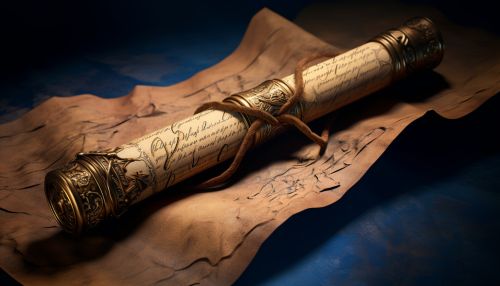Authoring
Introduction
Authoring, in its broadest sense, refers to the creation of works, often with a focus on written content, but extending to any form of content creation. This includes the creation of books, articles, reports, and other forms of written media, but also includes the creation of digital content, such as websites, blogs, and multimedia presentations. Authoring is a complex process that involves a range of skills and knowledge, from the technical aspects of writing and editing, to the creative process of developing ideas and narratives.
History of Authoring
The history of authoring dates back to the earliest forms of written communication. The ancient Egyptians, for example, were known for their hieroglyphs, a form of writing that combined pictorial and symbolic elements. The Greeks and Romans further developed the art of writing, with authors such as Homer and Virgil creating epic works that have stood the test of time read more.
The invention of the printing press in the 15th century revolutionized the field of authoring, making books more accessible and affordable, and thus opening up the world of authorship to a wider range of individuals. This period also saw the emergence of the concept of the author as a distinct individual, with unique ideas and a unique style.
In the modern era, the advent of digital technology has once again transformed the field of authoring. Today, anyone with access to a computer and the internet can become an author, creating and publishing content for a global audience.


The Process of Authoring
The process of authoring typically begins with the development of an idea or concept. This can come from a variety of sources, including personal experiences, research, or simply the author's imagination. The author then works to develop this idea into a coherent narrative or argument, often through a process of drafting and revision.
The authoring process also involves a range of technical skills. These include the ability to write clearly and effectively, to structure a narrative or argument in a logical and compelling way, and to use language in a way that is engaging and appropriate for the intended audience. In addition, authors must be able to edit their own work, identifying and correcting errors and inconsistencies, and improving the clarity and flow of their writing.
In the digital age, the authoring process also often involves skills in multimedia content creation. This can include the ability to create and edit images, video, and audio, as well as the ability to design and build websites and other digital platforms.
Types of Authoring
There are many different types of authoring, reflecting the wide range of media and formats in which content can be created. These include:
Literary Authoring
Literary authoring refers to the creation of works of literature, such as novels, short stories, and poetry. This form of authoring is often associated with high levels of creativity and originality, and requires a strong command of language and narrative technique.
Technical Authoring
Technical authoring involves the creation of technical documents, such as manuals, reports, and specifications. This form of authoring requires a strong understanding of the subject matter, as well as the ability to communicate complex information in a clear and accessible way.
Digital Authoring
Digital authoring refers to the creation of digital content, such as websites, blogs, and multimedia presentations. This form of authoring requires a range of technical skills, including web design and development, graphic design, and multimedia production.
Academic Authoring
Academic authoring involves the creation of scholarly works, such as research papers, dissertations, and textbooks. This form of authoring requires a deep understanding of the subject matter, as well as the ability to conduct original research and to write in a clear and precise academic style.
The Role of the Author
The role of the author is not simply to create content, but also to engage with the audience and to communicate ideas effectively. This involves a range of skills and abilities, from the technical aspects of writing and editing, to the creative process of developing ideas and narratives.
In the digital age, the role of the author has expanded to include a range of new responsibilities. These include the management of digital platforms, such as websites and social media accounts, as well as the creation and editing of multimedia content.
The author also plays a crucial role in the publishing process. This can involve working with editors and publishers to prepare a work for publication, as well as marketing and promoting the work to reach the intended audience.
Conclusion
Authoring is a complex and multifaceted process that involves a range of skills and knowledge. From the creation of written content, to the development of digital media, the field of authoring is constantly evolving, offering new opportunities and challenges for authors.
Whether creating a novel, a technical manual, a blog post, or a multimedia presentation, the author plays a crucial role in communicating ideas and engaging with the audience. As such, authoring is not simply a technical process, but a creative and communicative one, requiring a deep understanding of both the subject matter and the intended audience.
